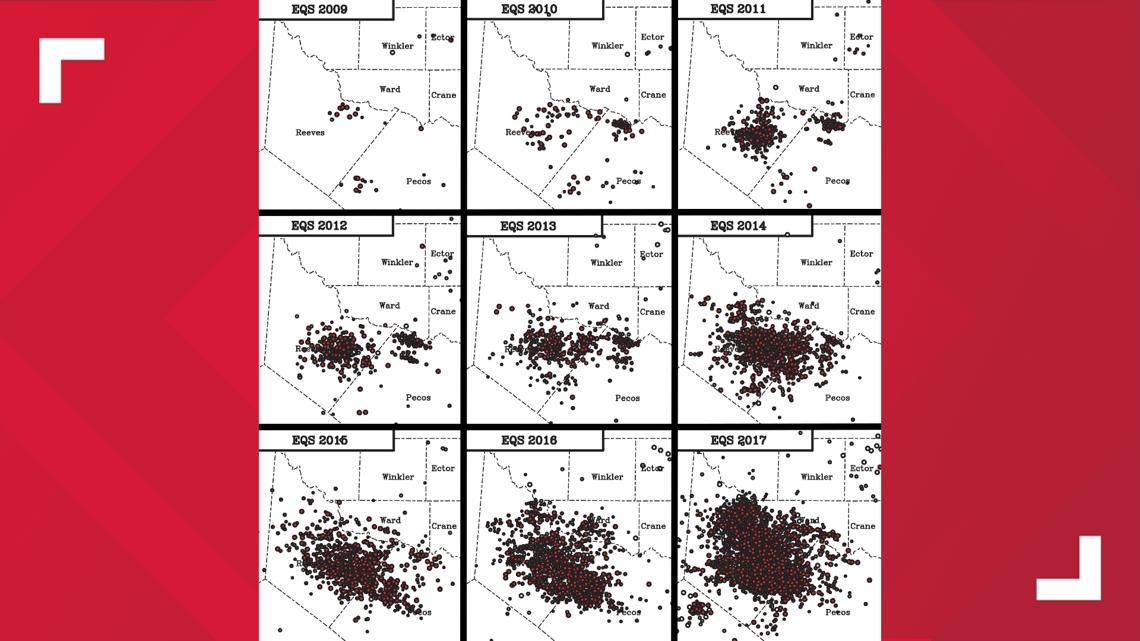TEXAS, USA — This summer, Texas has registered over 1,000 earthquakes. A few of the stronger ones – Magnitude 4 and above – made headlines in late July.
The large number can seem staggering because Texas isn't known for earthquakes. So why have there been so many?
In most cases, the earthquakes are small and can't be felt, but as years have passed, higher magnitude quakes have become slightly more common.
To unearth the mystery, we spoke with Alexandros Savvaidis, a seismologist, research professor and overseer of the TexNet Earthquake Catalog.
“From the tectonic point of view, we don't expect earthquakes in the state of Texas," he said.
Savvaidis said Texas is located on the intraplate of the continent, which isn't supposed to see a lot of seismic activity.
"But due to the changes in the stress state of the subsurface, we start having earthquakes," he said. "Now, this is happening mostly due to the oil and gas operations."
There are two main ways this happens: saltwater disposal and fracking.
During oil and gas drilling operations, salt water is produced. To dispose of it, it's put back into the ground by way of a well, which is very deep.
Meanwhile, according to the Independent Petroleum Association of America, "hydraulic fracturing (fracking) is the process of injecting liquid and materials at high pressure to create small fractures within tight shale formations to stimulate the production and safely extract energy from an underground well after the drilling has ended."
In a nutshell, both practices can disrupt known or unknown fault lines under the surface of the Earth, causing things to shift around.


Now that this analysis is generally accepted by both scientists and petroleum producers, the job of those at the TexNet Earthquake Catalog is to "provide information about smaller magnitude earthquakes to the public and the industry, so that we can understand the way the seismicity is migrating and that can help us on prevention," according to Savvaidis.
The biggest preventative measure he proposed is that Texas may eventually benefit from a "seismic code," or guidelines that protect buildings and people from earthquakes, similar to what California has in place.

